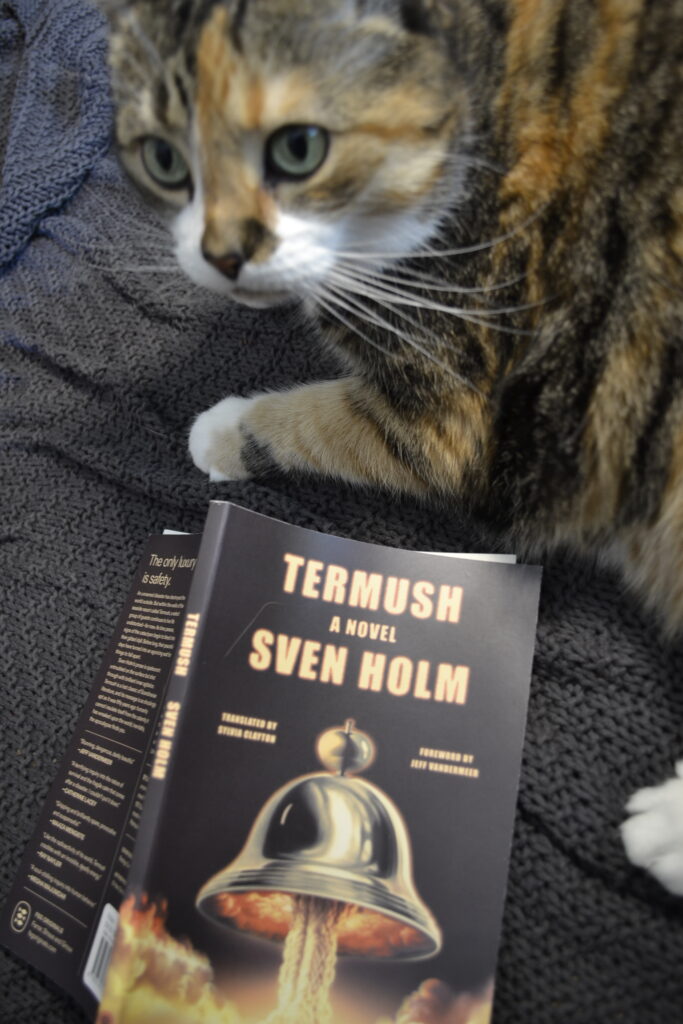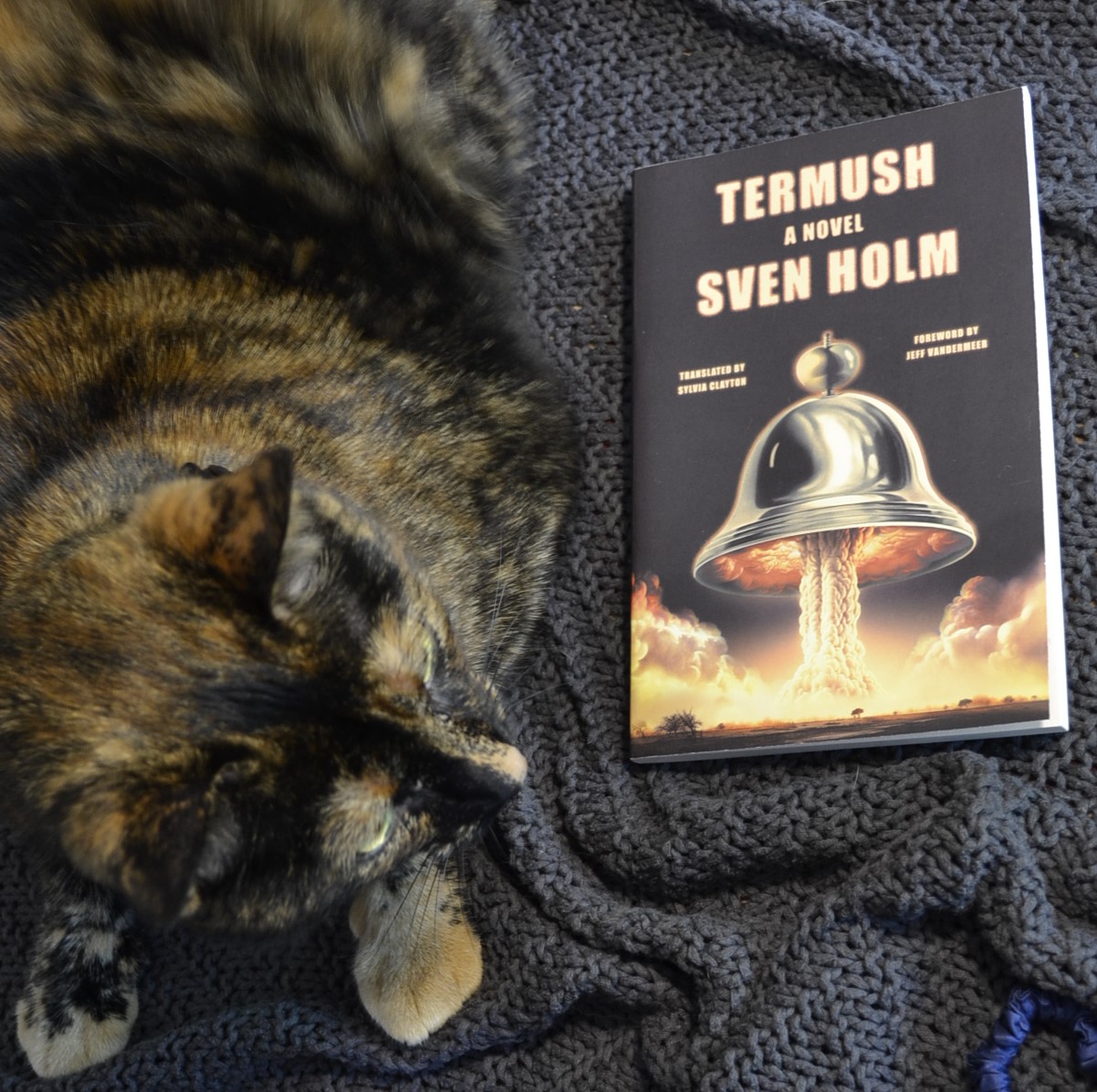Olympics!
Since last week, the Olympics have been constantly in the background at our house. While we’re working, we’re watching a few events live, and then at night we’re usually watching the highlights reel. It brings back a lot of fond memories for me. I spent most of my childhood summers out at my grandparents’ cottage — and, for that cottage, my grandfather had purchased the world’s weirdest portable TV. It was the nineties, so the screen was about six inches across, but the back must have extended about a foot. Then there was a huge antenna that would only pick up a single channel. Maybe two.
Fortunately, that channel was CBC — which meant that the Olympics would run all through my days at the cottage. I would be swimming and watching my family cheer at the screen. After dinner finished grilling, we would gather around and watch athletics and gymnastics. Even though we weren’t really a sports-oriented family, we would watch everything and cheer on Canada — my grandfather the loudest of all. When I think back, he was the most sporting of all of us and excelled at almost everything he did, be it golfing or lawn darts. He approached everything with patience and the urge to understand not just the mechanics but what it meant to really enjoy the sport.
I’m not my grandfather, but I grew up with a respect for the dedication that athletes have for their chosen sport. And I enjoy watching their successes and sympathizing with their failures. Working in the arts teaches you to respect the crafts of others — even if they are a discipline far removed from your own.
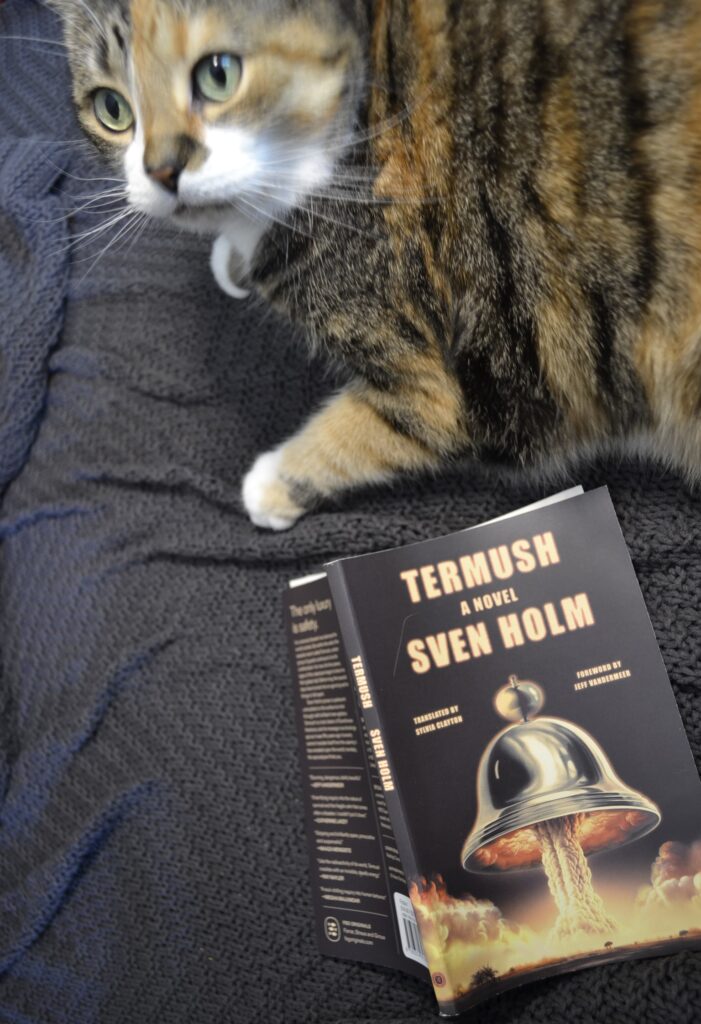
The Lost Classic
Sven Holm was a celebrated Danish novelist who also wrote short stories and plays. He also won multiple awards. Yet Termush, which was written in 1967, wasn’t published until last year (four years after Holm’s death). A lost classic is an exciting thing for the readers who are always hunting out exceptional things from the past. It doesn’t happen often, but, when it does, the discovery of a lost classic can lead to new perspectives on the body of work of a well-known author or even on literature in general. We’ve been a bit spoiled with lost classics lately. Last year there was Termush, and this year there has already been a Gabriel Garcia Marquez’s Until August and Jack Hilton’s Caliban Shrieks.
One of the best things about a lost classic like Termush is that they can be surprisingly relevant to the world, even though they were written so far in the past. Although, in this particular case I sorely wish this wasn’t true.
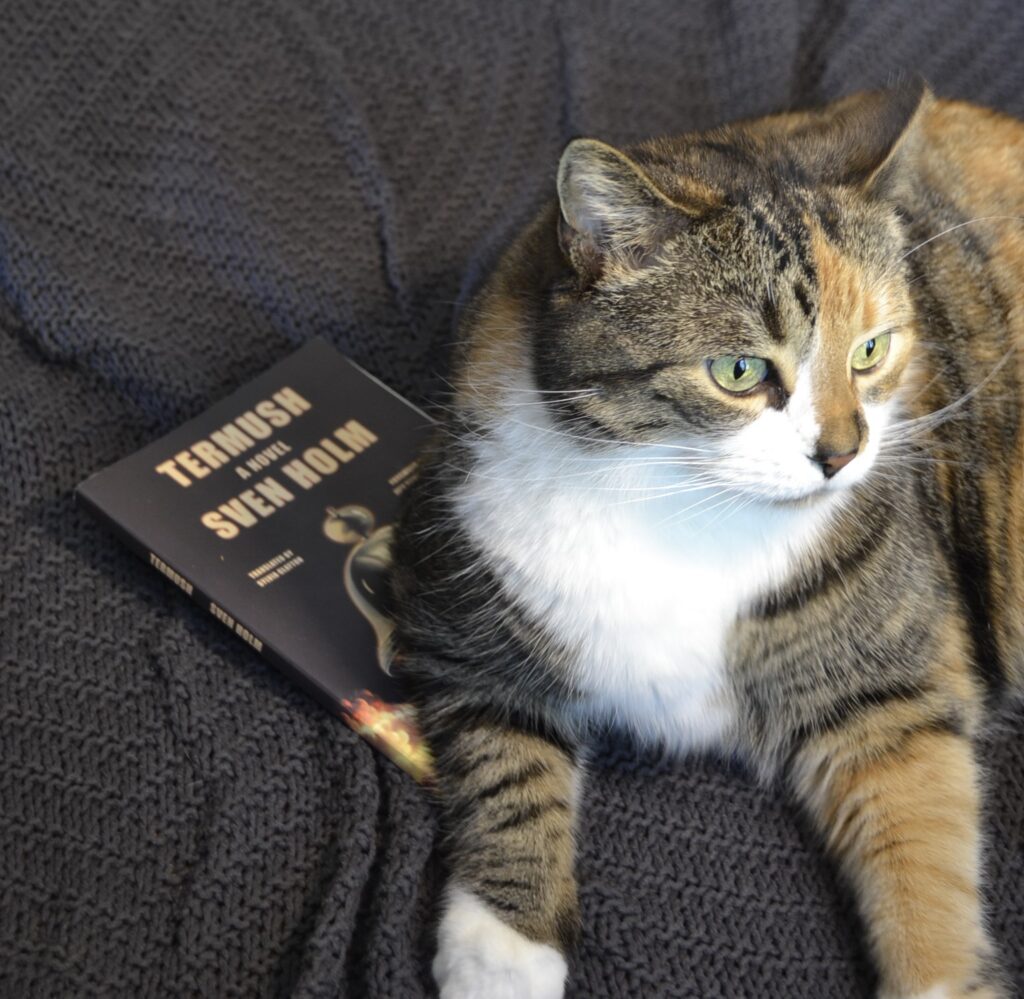
After the Apocalypse
Termush centres around a seaside resort that after an unnamed disaster (but all signs seem to point to a nuclear war followed by a plague or a plague followed by nuclear war), which now houses those individuals that could pay for shelter and medical care. The goal is to forget the disaster and move on with their lives by staying as ignorant as possible — hoping for some kind of future. But they soon find that they cannot simply ignore the disaster or the fact that the privileged within their walls were not the only survivors.
The novel might be very compact, but it has a lot to say and it does not follow the usual trajectories that most post-apocalyptic narratives do. However, I found that the length left something to be desired here. I wanted more meat to the narrative — yet I think part of Holm’s point is that there is no clear ending, no clear path forward, and no definite hope for the future.
It’s not exactly a hopeful book, but not every narrative can be hopeful and not every narrative has clear answers or conclusions.
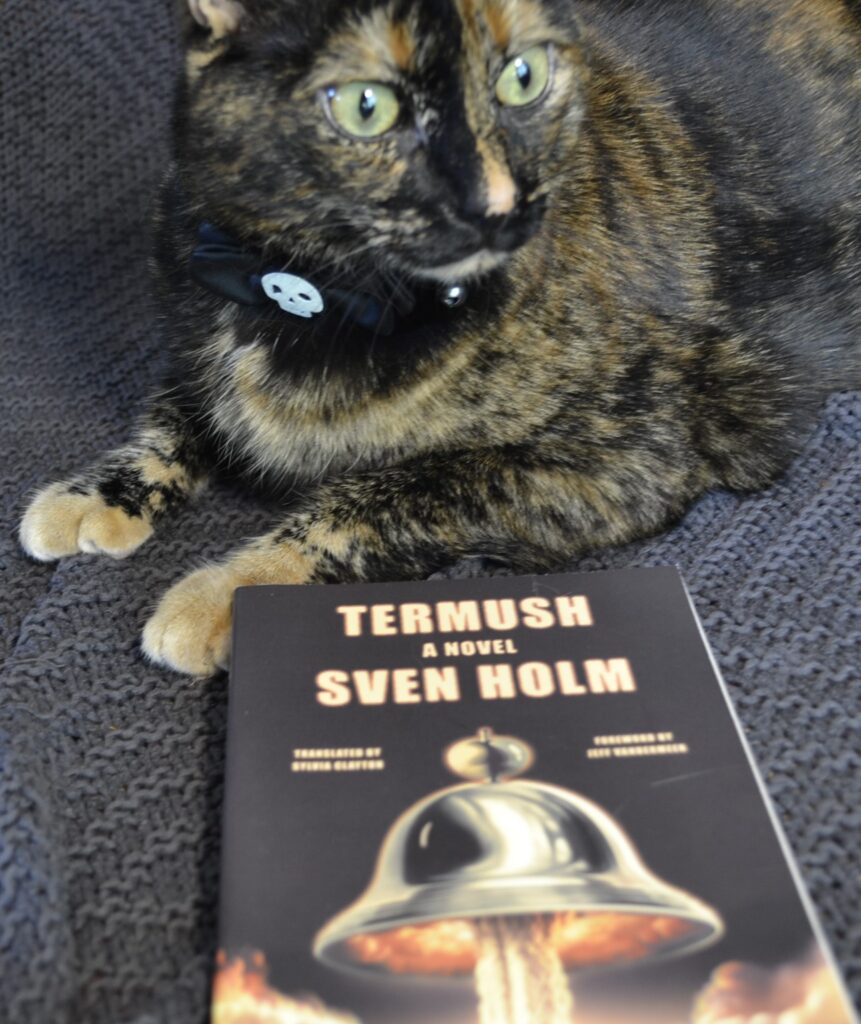
Complexity Within Simplicity
The plot may be simple, but Holm asks some very difficult questions with Termush. Not only is it a critique of the upper classes and privilege, but it also questions why individuals aren’t more united in times of disaster. It wonders why selfishness is constantly the language of desperation and if this is inevitably what happens when people are left to their own devices. Holm uncomfortably wonders just how far our obligation to assist fellow human beings goes and when self preservation should take precedence. Where do our responsibilities lie?
There’s a lot to chew on here, and, like there are no real conclusions, Holm proposes that there are no real answers — just a rather gloomy picture of what some people will do when they are driven to fight for their survival. But though it is tempting to think so, I don’t believe that Holm wants the reader to see humankind as thoroughly selfish and horrible. There are still people out there who will do the right thing, no matter what the circumstance and the personal cost.
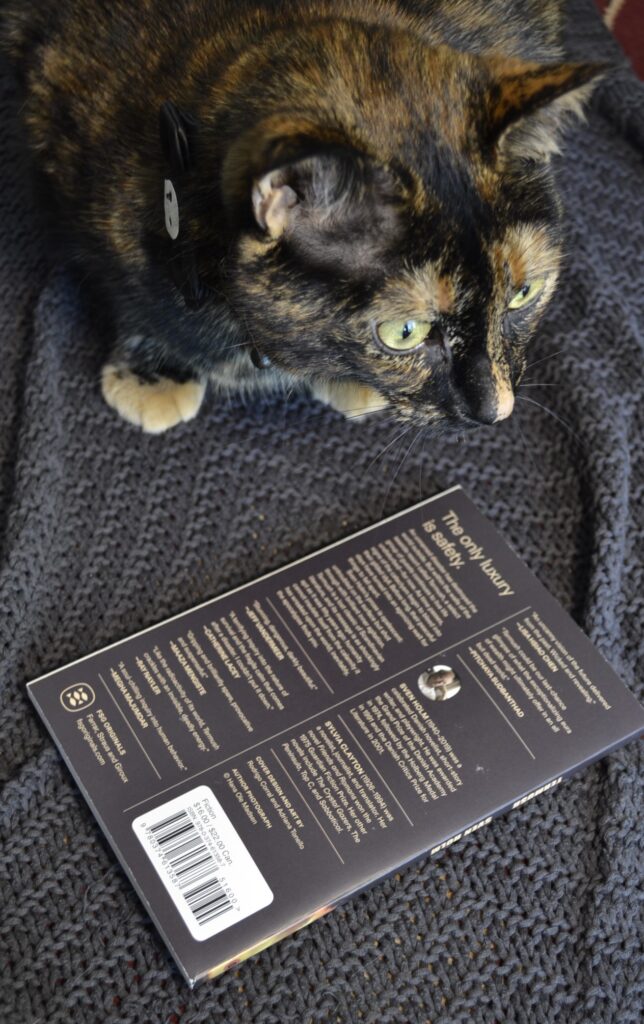
Pipe Cleaner Spiders
As Rusalka sees the boxes come out of the bedroom closet, she starts to get inordinately excited. Why? Because it’s time for her favourite toy! Despite all of the trinkets we spoil the girls with all year long, Rusalka goes absolutely bonkers for a twisted set of pipe cleaners that she bats across the floor and carries down the hallway. The first day they’re out of their seasonal hole, she works herself into a tizzy and then is utterly exhausted come evening.
Well, I guess I’m glad I know what she likes.
